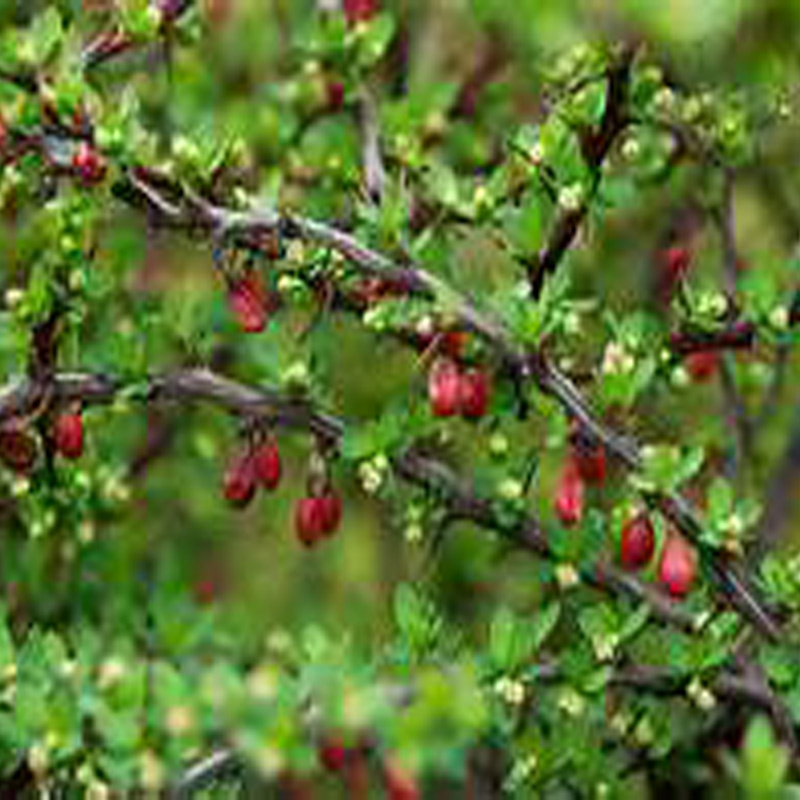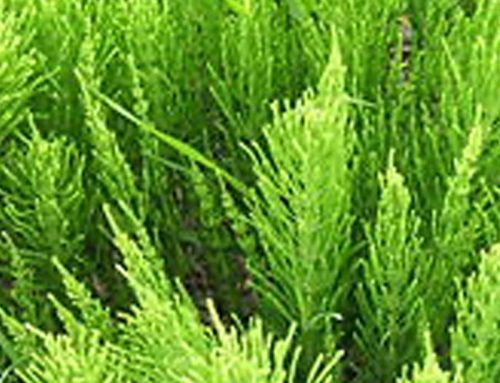- Barberry is an herbal remedy and its benefits mainly come from the extensively researched alkaloid it contains known as berberine.
- Berberine has strong antibacterial, antifungal, antioxidant and antiprotozoal properties.
- Used for the natural treatment of bladder, urinary tract, gastrointestinal or respiratory infections.
- Lowers triglyceride & blood pressure levels.
- Increases FSH and progesterone levels and decreases LH, estrogen and testosterone
- Research shows it may be helpful to people with diabetes, metabolic syndrome (high blood sugar, high blood pressure,excess body fat at waistline, abnormal cholesterol and triglyceride levels and obesity) and abnormal heart rhythms.
- It’s also excellent for liver for people with NAFLD (Non Alcoholic Fatty Liver Disease) and gallbladder health.
- Studies shows it may help to fight certain forms of cancer such as breast cancer.
- Dose best spread out to 3 times per day, 1-2 ml. One week on, one week off.
Recent research is verifying what natural healers have known for centuries — barberry has an incredible range of remarkable health benefits.
This berberine-containing plant has been used for over 2,500 years for its medicinal properties. Barberry and goldenseal are often used for similar medicinal purposes because of their berberine content.
Why is berberine so important? It’s been shown to inhibit the growth of bacteria and lower inflammation, which is huge since we know that inflammation is at the root of most chronic diseases.
In addition, barberry extract has beneficial effects on both the cardiovascular and neural systems. Studies have shown that antioxidant-rich barberry can even help prevent center types of cancer.
Potential Health Benefits:
1. Fights Infection
Many studies have pointed out that the berberine contained within barberry has significant antimicrobial and antifungal abilities. By inhibiting the ability of bacteria to attach to human cells, it helps protect against many infections.
Barberry is used to ease a large variety of inflammation and infection in the body. It helps with bladder, urinary tract and gastrointestinal infections. It also helps relieve common respiratory tract ailments, including sore throat, nasal congestion, sinusitis and bronchitis. Candida infections may also be improved through the use of this herb.
2. Aids the GI Tract
Berberine acts on the smooth muscles that line the intestines, helping improve digestion and reduce gastrointestinal pain. Barberry is even an effective treatment for diarrhea, including both traveler’s diarrhea and diarrhea caused by food poisoning.
A few studies have suggested that it improves gastrointestinal problems faster than antibiotics, most likely due to its astringent properties. Studies like the one published in the Journal of Infectious Diseases showed that berberine relieves bacterial diarrhea without any negative side effects.
3. Prevents and Helps Diabetes
Barberry has proven positive effects on blood sugar, making it an excellent choice to prevent and improve diabetes.
One study conducted on berberine compared taking 500 milligrams of this compound found in barberry two to three times daily for three months with taking the common diabetes drug metformin. Berberine was able to control blood sugar and lipid metabolism as effectively as metformin, with researchers describing berberine as a “potent oral hypoglycemic agent.”
Additional studies have also indicated that berberine improves glucose and lipid metabolism disorders. A study published in Evidence-Based Complementary and Alternative Medicine showed that berberine can improve insulin sensitivity by adjusting adipokine (cell-signaling proteins) secretion.
Adipokines have been shown to mediate inflammation and insulin resistance.
4. Improves Heart Health
When it comes to heart health, many medicinal properties of the Berberis species of plants have been reported, including effectiveness in improving hypertension, ischemic heart disease, cardiac arrhythmias and cardiomyopathy.
Atrial fibrillation is an irregular, often rapid heart rate that commonly causes poor blood flow. Alternative medicines, including yoga, acupuncture, biofeedback and supplementation with herbs like barberry, have been shown to be very effective at treating atrial fibrillation.
A 2015 study reported that barberry’s active alkaloid berberine produces a biochemical action in the heart that prolongs the effective refractory period, which improves atrial fibrillation. The study concludes that the berberine acts as a class IA or III anti-arrhythmic agent, but the benefits of berberine in atrial fibrillation/atrial flutter have not been systematically studied in human clinical trials — therefore its mainstream acceptance in the treatment of atrial fibrillation remains limited.
Barberry has also been shown to reduce the density of serum cholesterol and triglycerides, which is excellent for heart health and overall wellbeing.
5. Combats Metabolic Syndrome
Metabolic syndrome is a metabolic disorder that involves not one, but a combination of three or more of the following health issues: abdominal obesity, high blood sugar, high triglyceride levels, high blood pressure or low HDL (“good”) cholesterol.
A 2014 study in Iran aimed to explore the impact of supplementation with barberry, a fruit rich in antioxidants, on pro-oxidant-antioxidant balance (PAB) in patients with metabolic syndrome. PAB is a measure of factors that promote and control oxidative stress, and PAB may also be associated with the risk factors of coronary heart disease.
Oxidative stress is essentially an imbalance between the production of free radicals and the ability of the body to counteract or detoxify their harmful effects through neutralization by antioxidants so the less oxidative stress (lower PAB) the better!
For this particular study, a total of 106 patients diagnosed with metabolic syndrome were randomized in two groups: case and control. The case group received three capsules of barberry, and the control group received three capsules of placebo for six weeks.
A significant decrease in PAB was observed in the barberry group while there was no significant change in the control group.
The findings indicated that supplementation with barberry (600 milligrams per day for six weeks) is associated with the suppression of systemic oxidative stress (as assessed by PAB). For people suffering from metabolic syndrome, supplementation with this herb can reduce oxidative burden, which is a key way to fight metabolic syndrome and all of its possible complications.
6. Cleanses the Liver and Gallbladder
The liver detoxifies our blood, produces the bile needed to digest fat, breaks down hormones, and stores essential vitamins, minerals and iron. The gallbladder’s main job is to store the cholesterol-rich bile that’s secreted by the liver. Bile is what helps your body digest fatty foods.
Barberry improves bile secretion. By boosting the secretion of bile, barberry is excellent for improving the health of both the liver and gallbladder, and also lowering LDL “bad” cholesterol.
The body’s bile secretion can be impaired by a variety of factors, including a poor diet. Berberine’s ability to aid in the secretion of bile is significant since cholesterol is excreted from the body almost exclusively via bile. Waste products also leave the body via bile secretion.
Uses and Dosage
Native Americans originally taught settlers barberry’s value as a medicinal herb. The ancient Egyptians used it in combination with fennel seed to ward off plagues while it was used to treat dysentery in India.
European herbalists have used it to treat gallbladder and liver problems, while healers in Russia used it for inflammation, high blood pressure and abnormal uterine bleeding.
According to a scientific article published in 2019, barberry’s compounds “have a strong impact on human health and can be used as a painkiller, as well as for the relief of fever, diarrhea and vomiting. They are also useful for curing liver and vascular problems and preventing many diseases.”
Barberry is available in capsules, fluid extracts, tinctures and as a topical ointment. The dried roots can also be used in tea, and its extracts are standardized to contain 8 percent to 12 percent alkaloids (berberine).
Currently, there is not enough scientific information to determine an appropriate range of doses for barberry.
For children, it should only be used under the supervision of a qualified health care provider, if at all. For adults, it’s traditionally used at a dose of two CCs three times daily.
For treatment of skin conditions such as psoriasis, barberry has been used topically as a 10 percent cream applied to the skin three times per day.
It’s not recommended for long periods of time (more than a week) without the supervision of your doctor.
Risks, Side Effects and Interactions:
People using normal and appropriate doses of barberry don’t generally report any negative side effects. With high dosages, possible side effects may include nausea, vomiting, diarrhea, dizziness, fainting, nosebleeds, low blood pressure, decreased heart rate, and decreased breathing.
Berberine is not recommended for very young children. In infants, it can interfere with liver function and might worsen jaundice.
Pregnant women should not take it because it may cause uterine contractions and trigger miscarriage. Barberry is also not recommended for nursing mothers since the berberine can be passed to the infant this way.
Barberry should never be taken at the same time as cyclosporine. Other drugs it may negatively interact with include medications changed by the liver including lovastatin (Mevacor), clarithromycin (Biaxin), indinavir (Crixivan), sildenafil (Viagra), and triazolam (Halcion).
You should also talk to your health care provider before combining barberry with anticholinergic drugs (drying medications), antihypertensive drugs and antidiabetes drugs, anticoagulant/antiplatelet drugs, sedative medications (CNS depressants), and some cholinergic drugs used for glaucoma, Alzheimer’s disease, and other conditions.
Barberry might decrease the effectiveness of antibiotics in the tetracycline family.
In general, if you take any other prescription medicine, non-prescription medicine or supplements, check with your doctor before taking it. If you have any chronic health issues, such as liver problems or diabetes, check with your doctor before consuming any barberry supplements.
Final Thoughts
- Barberry is an herbal remedy and its benefits mainly come from the extensively researched alkaloid it contains known as berberine.
- The most common variety is Japanese barberry (Berberis thunbergii).
- It has strong antibacterial, antifungal, antioxidant and antiprotozoal properties.
- Used for the natural treatment of bladder, urinary tract, gastrointestinal or respiratory infections.
- Research shows it may be helpful to people with diabetes, metabolic syndrome and abnormal heart rhythms. It’s also excellent for liver and gallbladder health.
- Studies shows it may help to fight certain forms of cancer such as breast cancer.





